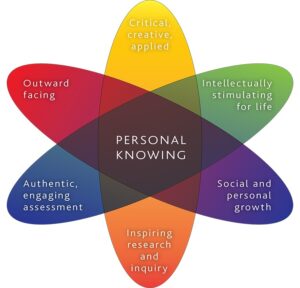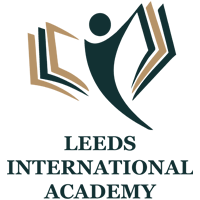The school is committed to shape students’ life/lives realistically by stimulating, innovative and research based curriculum. It is a blend of international curricula around the world with creative edge. Our educational programmes ensure optimum growth of a child (academic, social, physical, emotional, mental etc.) and we focus on inculcating attributes important for children like values, creativity, leadership, responsibility, self-belief, global citizenship, analytical attitude, learning etc. The modules in various programmes are age specific to invigorate academic progress of a child. Spectral opportunities/programmes (which are beyond confines of the class) realise the cherished dreams of it’s patrons. The diverse needs of children with different backgrounds are effectively taken care of by employing Easy Learning Solutions and by application of various Advanced Educational Technologies.
The modules in various programmes are age specific to invigorate academic progress of a child. Spectral opportunities/programmes (which are beyond confines of the class) realise the cherished dreams of it’s patrons. The diverse needs of children with different backgrounds are effectively taken care of by employing Easy Learning Solutions and by application of various Advanced Educational Technologies.
ACADEMIC / PREPARATORY PROGRAMME
The Kindergarten Programme inculcates in children the qualities of curiosity, exploration and discovery in a fun-filled, safe and happy learning environment. An individualised approach helps nurture a love for learning, develop social skills, and instill moral values. The emphasis is on developing student’s self-confidence and the ability to communicate in English as well as in their mother tongue effectively; teachers ensure this through effectual use of language and by encouraging children to express themselves freely.
A well-balanced curriculum and theme-based instruction help the young minds to integrate their learning smoothly. The emphasis is on exploring, knowing, understanding and forming own ideas. The principles of learning applied in Kindergarten include Holistic Development and Learning (Aesthetics and Creative Expression, Language and Literacy, Numeracy, knowing the world around us, Self and Social Awareness), Integrated Learning, Active Learning, Supportive Learning, Interactive Learning and Learning through Plays in order to prepare children for a smooth transition to a formal Primary curriculum. The Kindergarten Programme makes use of a range of individual and group activities which create a lively and positive learning environment. Games, creative projects, story-telling, role-playing, drawing and painting help develop children’s foundational skills in literacy, numeracy and knowing the world around us. They are encouraged to play, explore and discover through games, art and craft. Rhyming and reciting are employed in the Language Arts, and the Phonics Programme. The use of manipulatives, pictures and symbols helps them to identify relationships between sets and groups of things to be sorted, counted, shared and represented. Sports and interactions with sports teachers help in strengthening coordination and motor skills, and instill enthusiasm for sports. Picnics and field trips enhance students’ understanding of their surroundings. Celebration of festivals sensitizes them to multiple traditions and cultures. The target is to support importance of children’s early development to their health and wellbeing throughout later life as the delay in skill development in early years can reduce a child’s ability to communicate, learn, be mobile, live independently, make decisions etc.
Classes 1 to V
The Primary School Programme encourages inquiry and exploration, and develops children’s competence in various skills – reading, writing, listening, speaking, thinking, problem-solving, observation, measurement and use of information and communication technology. The Primary School offers an exciting and creative learning environment, with an inter-disciplinary appreciation of Languages, Mathematics, Science and Social Studies, Art & Craft, Computer Application, Value Education and Islamic Studies as individual and integrated subjects. Urdu/Hindi are taught as a Second Language while Kashmiri is taught as third language. This helps to build a strong foundation in languages. Equal emphasis is given to individual, small group and whole-group activities to improve children’s ability to work across all levels. Physical Education develops sports skills and creates health awareness. Exposure to team and individual sports encourage a sense of team spirit, and individual effort and accomplishment. The wide range of curricular and co-curricular opportunities offered, helps instill in children confidence and discipline. The focus on developing communication skills helps them appreciate the value of education, as it reflects in their ability to express themselves. In addition to developing pragmatic skills, field trips, excursions, activities, projects and presentations provide experiential learning opportunities. Students are encouraged to participate in inter-house cultural and sports events. Active learning techniques like free play, dramatisation, puppetry, singing, and cooking enhances their interest in learning. Book, newspaper and magazine reading activities helps increase child’s awareness of the world. Assemblies, concerts and drama productions help shape their confidence. Students’ engagement in community service activities from Class III onwards sensitises them to the needs of their community and the world around them; the visit to various charitable institutions like orphanages creates in them the understanding of social issues and a sense to serve the society in general.
Classes VI to VIII
The Middle School Programme is structured to meet children’s varied intellectual and developmental needs. The curriculum is build on concepts and skills learnt in the Primary School. It ensures progression and continuity across various stages of learning in the School, and incorporates continuous evaluation and review of children’s performance. The main aims of the Programme are developing skills related to writing, reading, reflecting, critical thinking, public speaking, fostering initiative among students and a desire to acquire knowledge. Academic subjects include English, Hindi/Urdu, Kashmiri, Mathematics, Science, History, Geography, Civics, PSHE (Personal, Social, Health Education), Art & Craft, Computer Applications and Islamic Studies will help students to address their age-specific interests and concerns, build awareness and promote compassionate and ethical conduct. Physical Education is offered in a formal manner and sports skills are fine-tuned. This prepares students to pursue sports in a structured and purposeful manner, which including studying sports in the Secondary School as a formal subject.
Classes IX to X
At Leeds International Academy, the curriculum starts with an emphasis on learning basic facts and then gradually moves to detailed understanding of concepts through interpretation and evaluation as students’ progress to higher classes. It is built around the principles of knowledge, understanding, application and skill-sets. Projects and the application of knowledge form an integral part and aid the development of analytical skills. The Programme aims to empower children to contribute towards a humane, just and pluralistic society, and promote introspective living. Students study English as the First Language, Urdu/Hindi as the Second Language, and Mathematics, History, Civics and Geography, Science (Physics, Chemistry and Biology). School trips/tours and excursions enable children to expand their understanding of the world from academic and cultural perspectives. They organise and participate in Inter-house cultural and sports events, thus developing leadership skills and team spirit. Community service is an integral part of the learning, with students actively involved in various services as it has lasting, positive impact on society at large, community services enables students to acquire life skills and knowledge as well as provide services to those who need it the most.
